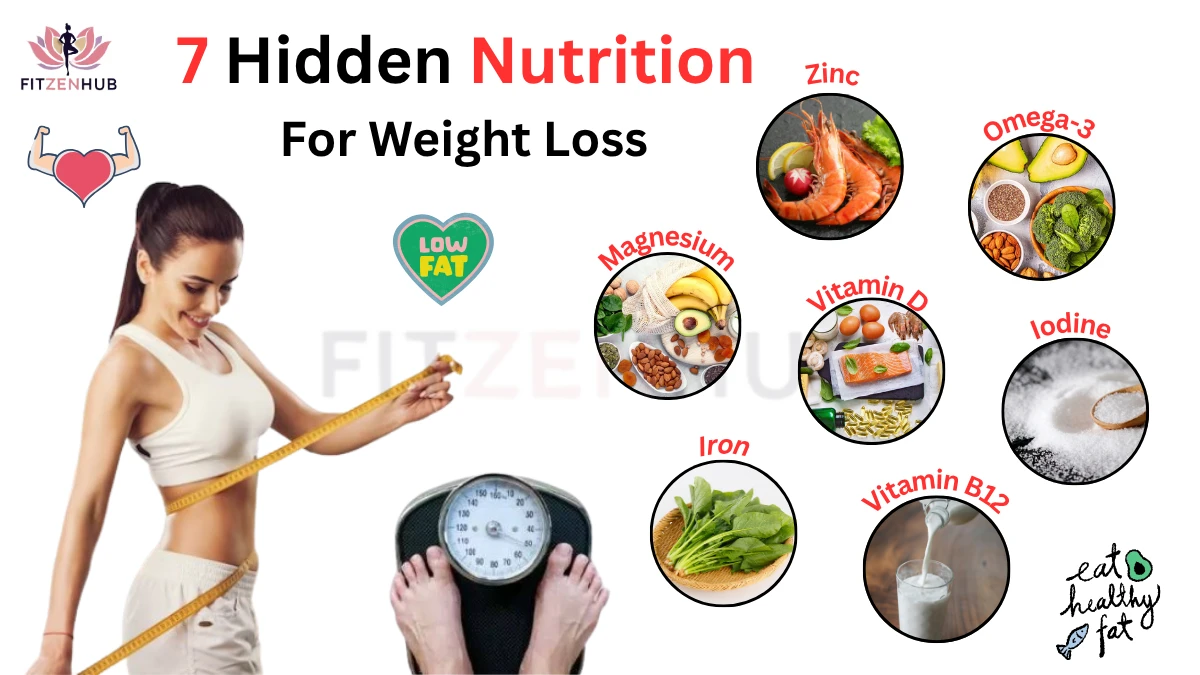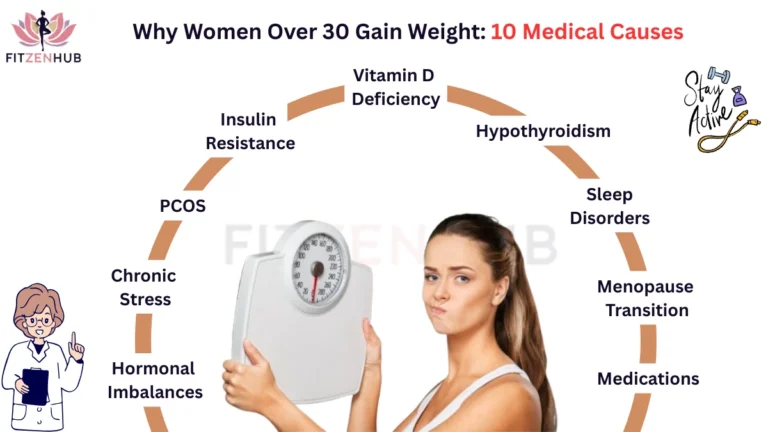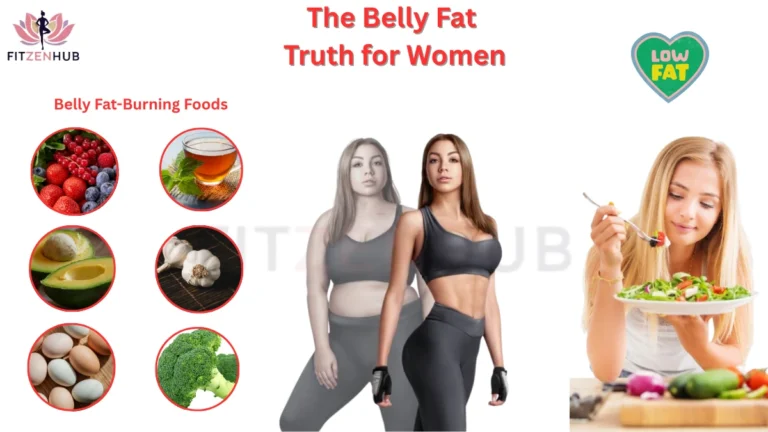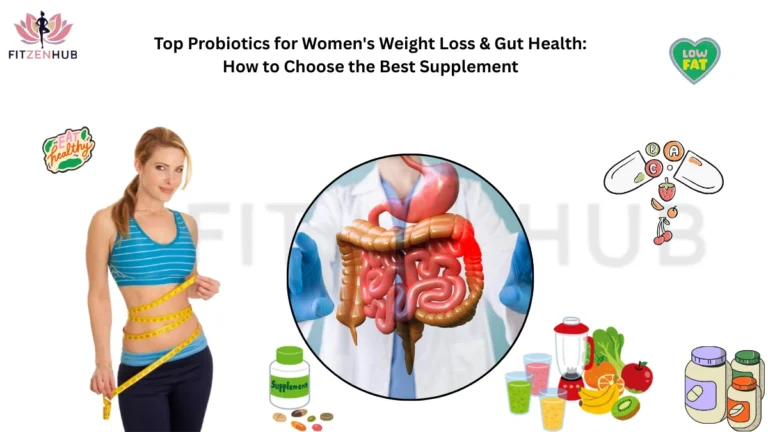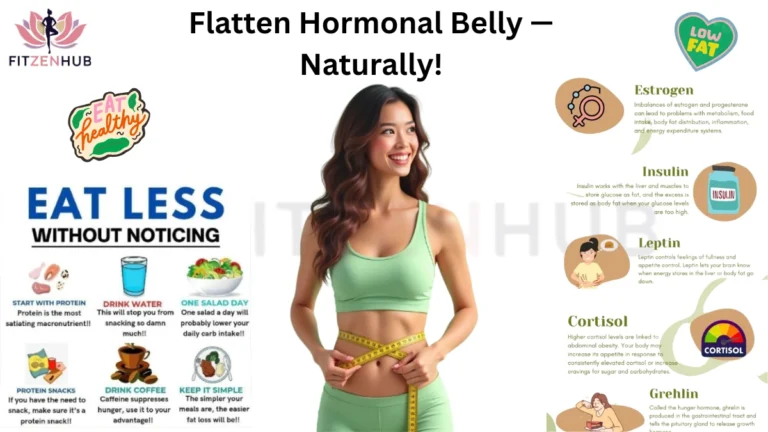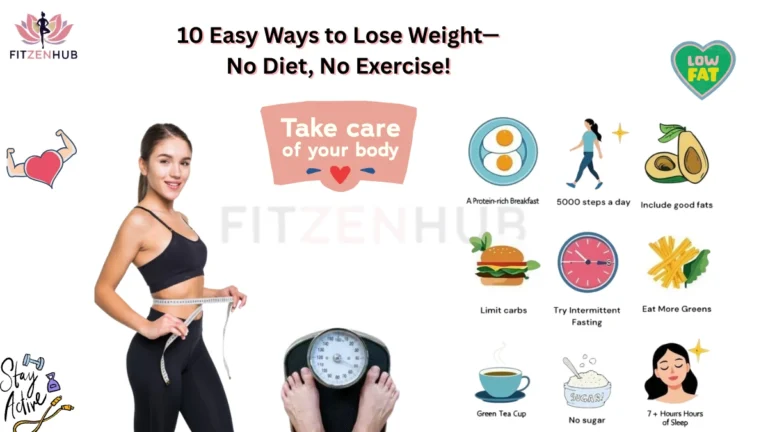Struggling to hit your weight loss goals despite doing everything “right”? Learn how to reset your approach with science-backed strategies, mindset shifts, and hidden blockers women often miss—so you can finally see results that stick.
Introduction: It’s Not Just About Calories or Willpower
If you’re eating “healthy,” exercising regularly, and still not seeing the weight come off — you’re not alone. One of the most overlooked causes of stubborn weight is nutrient deficiencies, especially in women. These deficiencies can slow metabolism, mess with hormones, and trigger intense cravings. Let’s uncover the seven most common nutrient deficiencies that could be sabotaging your progress.
1. Vitamin D: The Sunshine Fat Burner
Low levels of Vitamin D are directly linked to fat storage and sluggish metabolism. It also influences insulin sensitivity and mood — both key to staying on track with your fitness journey.
Symptoms: Fatigue, mood swings, frequent illness
Fix It: Sun exposure, fortified foods, or supplements (talk to your doctor)
2. Magnesium: The Metabolism Mineral
Magnesium plays a vital role in regulating glucose, insulin, and energy. Deficiency can increase fat storage, slow metabolism, and even disrupt sleep — which itself leads to weight gain.
Symptoms: Muscle cramps, sleep issues, cravings for sweets
Fix It: Add leafy greens, pumpkin seeds, almonds, and dark chocolate
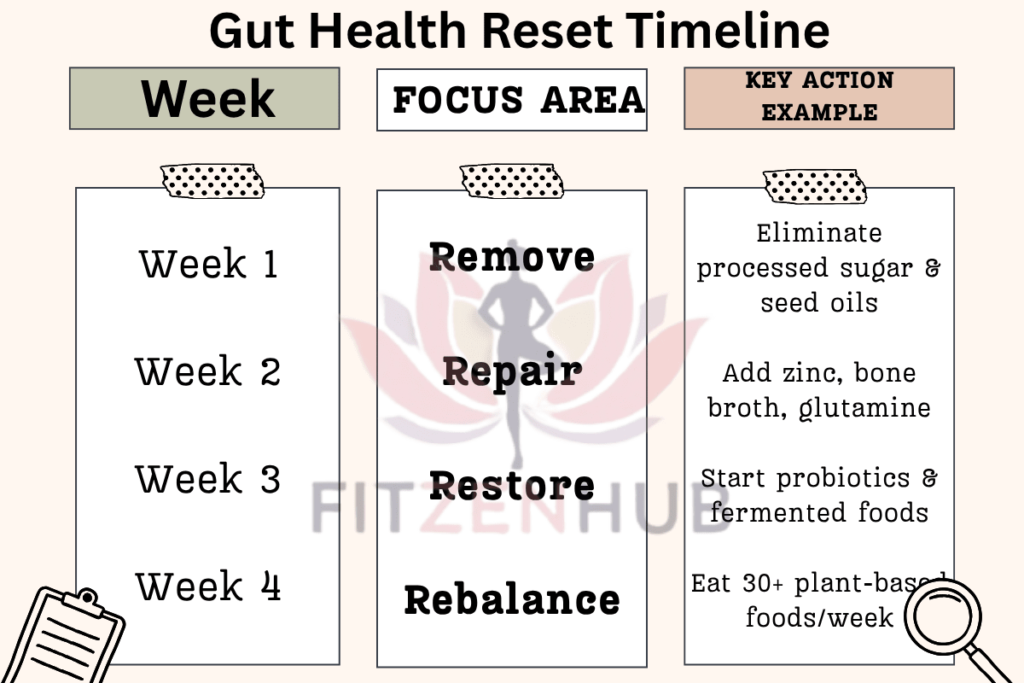
3. Iron: The Oxygen Carrier
Iron deficiency is especially common in menstruating women. Low iron means your muscles don’t get enough oxygen, making workouts harder and fatigue constant.
Symptoms: Cold hands/feet, exhaustion, hair thinning
Fix It: Red meat, spinach, lentils, and iron-rich cereals
Note: Take Vitamin C with iron to boost absorption.
4. Vitamin B12: The Energy Regulator
Without enough B12, your body can’t convert food into energy efficiently, leaving you drained and more likely to skip workouts or overeat for quick energy.
Symptoms: Brain fog, low energy, tingling hands/feet
Fix It: Eggs, dairy, fish, fortified foods — or B12 shots for vegans/vegetarians
5. Zinc: The Appetite Controller
Zinc is often overlooked, but it plays a major role in thyroid function and appetite regulation. Without it, your body may misread signals and increase cravings.
Symptoms: Poor immunity, slow wound healing, distorted taste/smell
Fix It: Shellfish, chickpeas, seeds, and whole grains
6. Omega-3 Fatty Acids: The Inflammation Fighter
These healthy fats reduce inflammation — a key driver of belly fat and hormonal imbalance. Most women don’t get enough omega-3s, especially those who avoid fish.
Symptoms: Dry skin, brain fog, joint pain
Fix It: Fatty fish, walnuts, flax seeds, or high-quality fish oil supplements
7. Iodine: The Thyroid’s Secret Weapon
Your thyroid controls metabolism, and iodine is its essential fuel. Low iodine = sluggish thyroid = slow fat burning.
Symptoms: Cold sensitivity, dry skin, weight gain, puffiness
Fix It: Seaweed, iodized salt, dairy, and seafood
How to Know If You’re Deficient?
A simple blood test can reveal deficiencies, but symptoms alone are powerful clues. Consult a healthcare provider and consider a nutrient-focused approach to weight loss.
🧮 Daily Fiber Intake for Fat Loss & Gut Balance
The Bottom Line
Calories are just one piece of the puzzle. If you’re doing “everything right” but still stuck, these hidden nutrient gaps might be to blame. Fixing them can reignite fat burning, boost mood, and restore your energy — so weight loss feels natural again.
📚 Sources:
- Harvard Health – Nutritional Deficiencies and Weight
- NIH Office of Dietary Supplements – Magnesium, Iron, Vitamin D
- Cleveland Clinic – Signs of Vitamin Deficiencies
- Journal of Clinical Endocrinology – Thyroid and Iodine Deficiency in Women
💬 Final Thoughts:
If you’ve been doing “everything right” and still feel stuck, it’s not a lack of willpower—it might be a lack of nutrients. Your body isn’t fighting you; it’s whispering for deeper care. When you nourish it with the right fuel, your energy, metabolism, and confidence will finally align.
Don’t chase harder workouts—chase balance, clarity, and cellular strength.
❓ FAQs:
Q1. Can nutrient deficiencies cause weight gain or slow weight loss?
A: Yes. Deficiencies in key nutrients like magnesium, iron, or B12 can impact metabolism, energy, hormone balance, and cravings—making weight loss harder even with healthy habits.
Q2. What are the most common deficiencies that affect women’s weight?
A: The most common include magnesium, iron, vitamin D, B12, iodine, zinc, and omega-3 fatty acids—all critical for fat metabolism, thyroid function, and energy production.
Q3. How can I know if I have a nutrient deficiency?
A: Symptoms like fatigue, hair thinning, mood swings, poor sleep, or sugar cravings may signal a deficiency. A blood test or micronutrient panel is the best way to confirm.
Q4. Can supplements help with weight loss if I’m deficient?
A: Yes, but they should complement a whole-food diet. Supplements help restore balance faster, especially when paired with gut healing and hormone-friendly habits.
Q5. What foods can help correct these deficiencies naturally?
A: Leafy greens, seeds, fatty fish, eggs, fermented foods, seaweed, nuts, and whole grains are packed with weight-loss-friendly nutrients.

